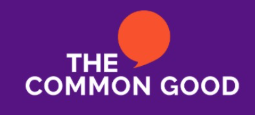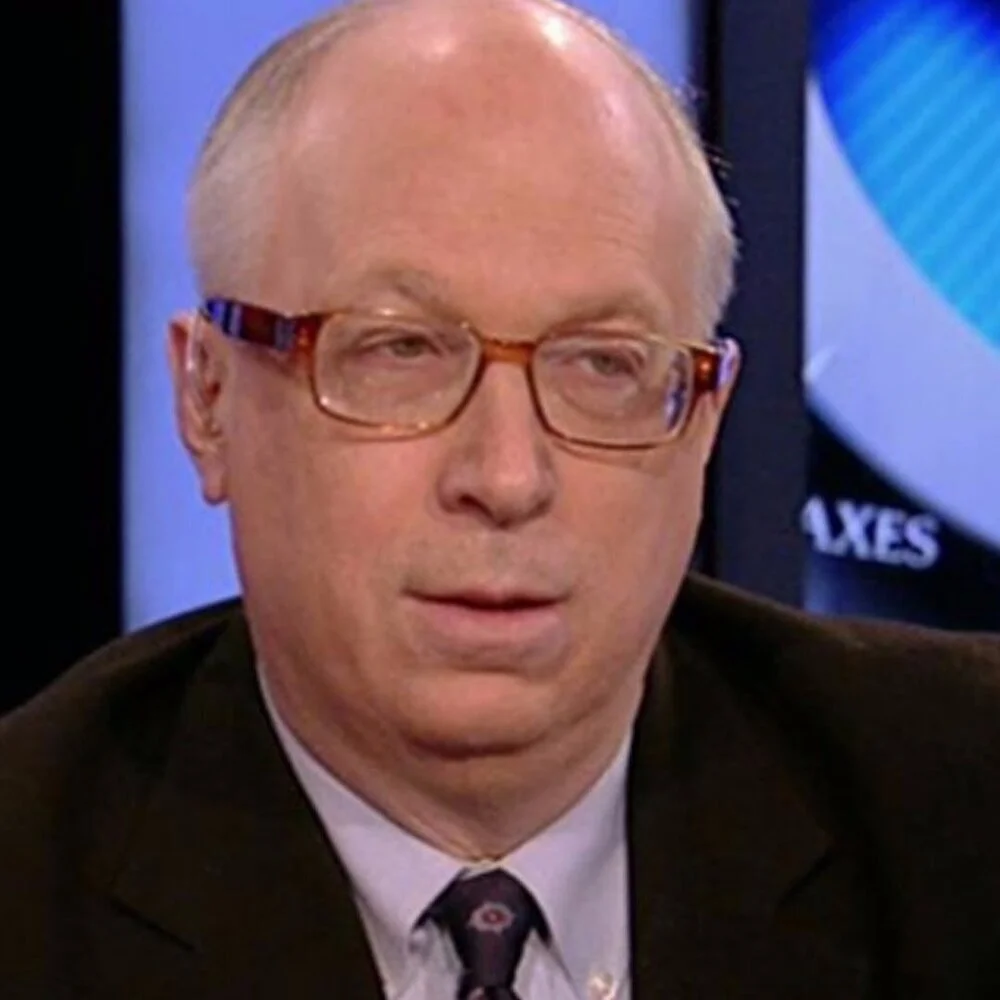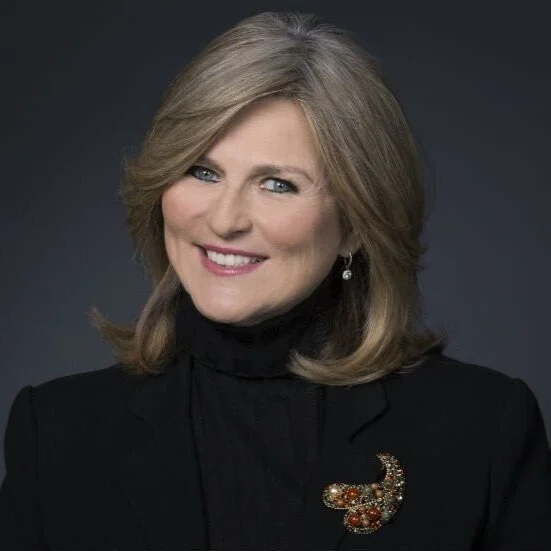
PAST EVENTS
The White Working-Class Political Revolution
Author David Paul Kuhn and former Virginia Senator Jim Webb examined the drift of the white working-class voter from the Democratic party to the Republican party and the enormous impact it has had on U.S. politics. Together, they’ll help explain what drove these voters, and how that schism continues to exacerbate class conflict and political polarization today. In light of the most recent election, this will surely be a timely and essential conversation. The conversation was moderated by the brilliant journalist Clyde Haberman.
There’s no getting around it; this week has been a deeply troubling, emotionally draining one for most Americans. Beginning with an audio recording of President Trump pressuring the Georgia Secretary of State to find votes that don’t exist, to an armed insurrection that overtook the Capitol and attempted to derail the peaceful transfer of presidential power, and ending with a record breaking number of daily coronavirus deaths.
Our inimitable moderator, Clyde Haberman, began our conversation by appropriately asking our guests, author David Paul Kuhn and former Virginia Senator, Jim Webb, what they made of it all. The former Senator astutely observed the nature of mobs and how they differ from the actions of individuals. Kuhn correctly reminded us not to mistake a few thousands extremists with the 74 million people who voted for Trump. We have, afterall, a two party system, but we are not a two party country. Many voters are anti-liberal, and not necessarily conservative. It’s a mixed bag of voters - some support a path for citizenship and some support a wall for example.
LBJ was the last president to win the white vote, so what happened?
Kuhn emphasizes the context and chaos of the time as a contributing factor to white working-class voters leaving Democrats for Republicans. Nixon appealed to them, while Democrats focused on making inroads with African Americans, LGBT, and more recent immigrant communities. Today, the Democratic coalition includes many wealthy, college educated whites as well.
According to Kuhn, entities like The Lincoln Project were not as successful at bringing Republican voters over to Biden as they could have been because they emphasized the wrong things. Rather than highlighting how Trump, in many ways, governed like a traditional, business friendly conservative, they focused on just what a lousy president he is. Historians may very well come to that same conclusion, but that just didn’t resonate with the white working class. Ultimately, People ultimately go to their sides when forced to choose their corners - Kuhn uses feminists supporting Clinton post-affair as an example of this.
Both commended Biden for bringing down the national temperature, striking the right tone and appealing to blue collar white voters, even if it was late.
There is a sad phenomenon taking place in America's white working class. Decreasing life expectancy, increasing divorce rates, stagnant incomes, rising alcohol and drug abuse, or as Nobel Prize Winning economist Angus Deaton has called it, Deaths of Despair.
How do Democrats win back these disillusioned voters?
Kuhn and Webb argue that Democrats need to lessen the cultural weight and emphasize common cause and needs - infrastructure, social safety nets, early education and broadband. The needs of the white working class don’t look that different from those of black and brown working class communities.
WATCH:
David Kuhn is a political analyst and writer who has written several books that have been heavily praised, including his most recent one that was named on The New York Times "100 Notable Books of 2020." Kuhn has served as the chief political writer for CBS News online, a senior political writer for Politico as well as chief political correspondent at RealClearPolitics. He has also written for The Atlantic, The New York Times, The Wall Street Journal, The Washington Post Magazine, The Los Angeles Times, National Review, New Republic, among other publications, and regularly appears on networks ranging from BBC to Fox News.
His book is credited by famed strategist James Carville as “perhaps the best book ever on how Democrats lost the white working class” and in the WSJ, Senator Webb stated that Kuhn was an “unacknowledged prophet” for the “consistency” of his longtime “warnings about the reasons white working people were moving away from the Democrats [which] were largely dismissed by the news media and party elites.”
Jim Webb is the former Democratic Senator from Virginia He wrote, introduced, and guided to passage the Post-9.11 GI Bill, the most significant veterans legislation since World War II, and co-authored legislation which exposed 60 billion dollars of waste, fraud and abuse in Iraq and Afghanistan wartime-support contracts. A long-time advocate of fixing America’s broken criminal justice system, Mr. Webb was spotlighted in The Atlantic as one of the world’s “Brave Thinkers” for tackling prison reform and possessing “two things vanishingly rare in Congress: a conscience and a spine.” He went on to give a response to the State of the Union which has been regarded as one of the stronger State of the Union responses in recent memory.
He previously served as Secretary of the Navy under President Reagan and is the recipient of the Purple Heart. Webb is also an Emmy Award winning journalist, a filmmaker, and the author of ten books. Since retiring, Webb is continued to be a prolific writer and has written for many national journals including USA Today, The New York Times, The Washington Post, and The Wall Street Journal.
Clyde Haberman has served as a journalist with The New York Times since 1977. His assignments included staff editor of The Week in Review; Metro reporter; City Hall bureau chief; and foreign correspondent in Tokyo and Rome, and bureau chief in Jerusalem. He is known and received tremendous praise for his coverage of the Attica prison rebellion, the fall of Ferdinand Marcos, the collapse of Communism in Eastern Europe, the Iraqi invasion of Kuwait, the 1993 Oslo accords between Israel and the Palestinians, the aftermath of the September 11 attacks and the rise of Islamic terrorism in the Middle East.
He was part of a Times team that won the Pulitzer Prize for Breaking News, awarded for coverage of the prostitution scandal that led to Eliot Spitzer's resignation as New York governor. He continues to be a NYT columnist and writes the Retro Report essays for The New York Times.
The Election That Could Break America
After Election Day, what should we expect? The list of possibilities is keeping experts on both sides of the aisle getting ready to take action. The Common Good hosts, “The Election That Could Break America” with Pulitzer prize-winning journalist Bart Gellman, and moderated by Tom Rogers. You will not want to miss Gellman dive into his most recent much-talked-about article in The Atlantic and his insights into the unprecedented scenarios that we may encounter post-election.
After Election Day, what should we expect? The list of possibilities is keeping experts on both sides of the aisle getting ready to take action. The Common Good hosts, “The Election That Could Break America” with Pulitzer prize-winning journalist Bart Gellman, and moderated by Tom Rogers. You will not want to miss Gellman dive into his most recent much-talked-about article in The Atlantic and his insights into the unprecedented scenarios that we may encounter post-election.
WATCH:
The Election that Could Break America - Recap
We thought we’d keep it light and fun for you all today; that’s why we invited Pulitzer prize- winning journalist, Bart Gellman, to The Common Good to discuss the election (yeah, that one). Media legend and Editor-at-large at Newsweek, Tom Rogers, moderated this important and all too timely discussion that centered on Bart’s recent and widely discussed article in The Atlantic, entitled, The Election that Could Break America. Tom was early (if not first) to note that Trump could very well subvert the election by staying in office no matter the outcome, and he has since written extensively about the topic in Newsweek with former Congressman Tim Wirth. Needless to say, we’re lucky to have two experts join us to discuss the election and potentially the future of our democracy.
Trump’s strategy is opacity, Bart begins ominously. Moreover, He will wield the power of incumbency to benefit his own reelection in a way that we’ve probably never seen before. While Trump will have a lot less running room if he loses by a landslide, we’re likely heading towards uncharted territory.
Gift of prophecy? No, just following the evidence; Bart asserts that no matter the outcome, Trump will not concede that he was defeated.
Both in prepared and off-the-cuff remarks, Trump has flatly said that the only way he could lose this election is if it is rigged against him.
“Our Constitution does not secure the peaceful transition of power, but rather presupposes it,” Bart Gellman.
Bart reminds us that SCOTUS didn’t determine 2000, it was Gore’s decision to ultimately concede.
SCOTUS, or at least Roberts, will be reluctant to weigh in, especially in the face of the court’s waning legitimacy. However, Bart can’t say the same for Kavannaugh at this point.
Bart suggests that if you ask most state legislators if they’d be willing to discard voters in their states, they’d probably say no. It’s hard to look in the mirror and do so; however, Trump’s genius is twofold; his manipulation of attention; and he enures people into grey areas, specifically norm-busting in a way they didn’t necessarily expect. And norms are the glue that keeps most of this together.
Ingredients for a Mess
Most states don’t allow mail-in-ballots to be processed before election day - it’s a slow process, so there will be a backlog. Florida, North Carolina, Arizona are important exceptions.
Trump has deliberately undermined trust in mail-in-ballots, creating a situation where many more Republicans will vote in person, while many more Democrats will vote by mail.
His strategy seems to be to disqualify votes that are counted “late,” locking in votes that are made day of, calling them valid.
Consequently, networks may be reluctant to determine a winner.
There’s no umpire; our elections are administered by thousands of localities. Bart soberly creates a scenario for us in which Trump attempts to blatantly steal the election: we would have mass demonstrations, with tens of millions of people. If they were peaceful, they (and democracy) would win. If they were violent, Trump could call on the troops and take advantage of the chaos.
Tom asks if there’s room for the business community to step in and while Bart acknowledges its potential efficacy, he also remarks “God help us if we are dependent on business leaders to figure out our elections for us.”
Similarly, it would be hard to imagine Republican party leaders diverging too far from Trump at any point in this process - they’re too enmeshed with his narrative.
Audience Question: What reforms can fix this?
The Electoral Count Act is a mess and in need of clarity.
We have a decentralized, underfunded election system that makes it inefficient and vulnerable to foreign threats, so money and some uniformity.
Further Reading from the Transition Integrity Project: https://assets.documentcloud.org/documents/7013152/Preventing-a-Disrupted-Presidential-Election-and.pdf
What We’re Watching this Weekend: City So Real (National Geographic/Hulu): This 5-part docu-series depicts a complex portrait of Chicago from the historic ‘19 mayor’s race to the tumultuous summer of ‘20.
Barton Gellman is a highly respected and much-honored author and journalist, a staff writer at The Atlantic, and Senior Fellow at the Century Foundation in New York. His awards include the Pulitzer Prize, an Emmy for documentary filmmaking, and the Los Angeles Times Book Prize.
His recent articles from The Atlantic have been widely praised for the cogent look at the turmoil and chaos that could erupt from the 2020 election.
Gellman is responsible for many important stories. He led The Washington Post's coverage of the U.S. National Security Agency, which was based in large measure on top-secret documents provided to him by ex-NSA contractor Edward Snowden. He published a book for Penguin Press on the rise of the surveillance-industrial state in May 2020.
Moderated by Tom Rogers, a true innovator and leader in the field of television, news and entertainment, Tom Rogers is the founder of CNBC and a CNBC contributor, as well as the founder of MSNBC, when he served as the first President of NBC cable. He is the former CEO of TiVo and is currently Chairman of Engine Media, a broad based sports, esports, and news content & distribution company.
He can also be credited for as bringing Netflix and Amazon to the TV screen. He is the former Senior Counsel to the House Telecommunications Committee where he oversaw the FCC and media industry. He is also an Editor-at-Large for Newsweek.
He has been inducted into the Cable Hall of Fame and has won an Emmy Award for contributions to the development of advanced television and advanced advertising.
Recap: Final Presidential Debate Panel
After a tumultuous first debate, the final face off will be the last, perhaps best, chance for President Trump or Vice President Biden to tell the American people why he should be elected the next president of the United States. Can we expect a serious discussion of their policy differences or another breakdown in decorum?
Whatever happens, these confrontations do shape the national conversation and the upcoming election -- and The Common Good had the extraordinary panel of political experts to analyze the impact on voters, who are already starting to head to the polls. Join ace strategist @PaulBegala and election outcome seer @RachelBitecofer. Moderated by Emmy nominated journalist @CynthiaMcFadden.
In keeping with the theme and general ethos of 2020, we had a few last-minute changes. Fortunately, the inimitable author, strategist and pollster Doug Schoen stepped in, along with the razor-sharp election whisperer, Rachel Bitecofer, as well as the brilliant, Emmy award-winning journalist, Cynthia McFadden, as moderator. And we’re lucky they did, as there’s plenty to unpack from the final (*phew*) presidential debate.
McFadden: Forget the formalities - Was there a winner?
Schoen contends that while Trump showed some much-needed discipline and restraint, ultimately Biden did what he needed to do and simply “held up.” And although the race might tighten a bit, the fundamental dynamics of the race won’t significantly change. Trump did the best he could given the facts on the ground, specifically the negative fallout of the pandemic. Ultimately, the candidates mostly spoke to their respective base, with Biden reaching out a bit to all Americans, but, notably, as a proud Democrat. With 45 million votes already, many experts are predicting record turnout for this election. Contrary to popular belief, however, Doug doesn’t see evidence that more turnout will invariably benefit Dems; and while Biden still has a clear advantage, swing states are closer than the overall popular vote.
Rachel, on the hand, said there probably wasn’t a winner of last night’s debate, just a loser - the American people. That was right before she soberly reminded us that our democracy is off the rails, that our president lies constantly and about important things, and that this enormous departure from American presidential history and norms has proven challenging for the media to cover in the face of the need for journalistic impartiality. While Trump was the consensus loser from the first debate, Rachel notes that this debate was mostly unnoteworthy. Partisans saw what they wanted to see – either a Trump win or a Biden win. Therefore, pure independents should be asked, but Rachel asserts they mostly don’t exist.
Are there still Undecided voters? (very few) What about Independent voters? (not really)
According to Doug, at this point in the race, Undecided Voters are low-information voters who feel alienated by the current system. They represent about 6% or 7% of voters.
Rachel argues that, based on her research, Independents aren’t actually independent. Actually, they almost always “lean” one way or the other (just like us, except they’re not political junkies). Moreover, Independents often are just as settled as partisans, they’re just more embarrassed about their partisanship.
Warning: Entering THE WEEDS
Rachel describes a theory that postulates: In our polarized era, Independents have an anti-status quo bias, meaning that the status quo always sucks for these voters. Therefore, they’re likely to break away from the current status quo. In this case, that would mean Independents will break in favor of the Democrats. In fact, per Rachel, the pandemic is likely to enhance the traditional 55%/44% vote for change by Independents.
Check Out Rachel’s article https://newrepublic.com/article/156402/hate-ballot
Cynthia brings up voter Trust, citing “Democracy is like Tinkerbell; once you stop believing she dies.”
Both Doug and Rachel are worried about the integrity of election and health of our democracy; however, they diverge slightly on the causes. While Doug focused on foreign interference in our election; Rachel emphasizes the institutional erosion - in the Senate, in the lack of government accountability and responsiveness, and in Trump’s open warfare on the election itself.
By the way, this warfare isn’t just Trump being Trump. Rachel also voiced concern about RNC and DOJ coordination. She paints the scenario whereby the conservative media machine declares Trump ahead on election day voting - knowing that Dems are more likely to vote by mail, Republicans in person - and then they launch a bevy of lawsuits to discredit mail-in votes that have yet to be counted.
Additional Thoughts from our Panel
Flash point? Biden’s comments on oil - specifically that we should transition away from it - could provide Trump with an opening to highlight the radical approach of The Green New Deal and Biden’s perceived equivocation on fracking.
Audience Question: Will it hurt Biden in PA?
Doug said Trump should wield that comment in a hyper-targeted way in Pennsylvania.
Rachel said those comments are more important in Texas, whose economy is more reliant on oil.
Biden has already walked it back and pivoted to ending subsidies for oil, which makes more political and practical sense. Although Trump has footage and will use it.
Switching to forecasting for Congressional Races
Rachel has the following states flipping Senate races to Dems: Arizona to Mark Kelly, Colorado to John Hickenlooper, Maine to Sarah Gideon, North Carolina probably to Cal Cunningham (very close, but early African American turnout is high).
There are tantalizing possible Tossups for Dems: Iowa to Theresa Greenfield, Alaska to Al Gross, South Carolina to Jaime Harrison, Kansas to Barbara Bollier.
But not Kentucky – White, low college-educated electorate
RE: Trump’s claim that Rs take the house – Trumps makes a lot of stuff up. No evidence, but hasn’t stopped him before. He’s just trying to keep people optimistic.
Rachel said just as there are best practices with pandemic response, there are best practices for electioneering – Base mobilizing being one of them, and usually every nominee comes out of the primary and repositions toward the center in the general election campaign.
However, Trump does things that are antithetical to winning elections:
Trump is still running a base strategy – worked last time, but it frustrates his handlers that they can’t get him to change course. He did tone down his temperament.
Final points: Rachel’s Minimal Effects Theory – Presidential campaigns don’t have a lot of room to influence voters in a hyper-partisan political landscape.
Trump has tamped down his voter erosion, but his first debate performance hurt the Senate Republicans. Trump is is seen as bad on race, empathy, police violence – not serious, empathetic voice. He’s adding to the criminality myth of black male. However, he has a bolder, better argument than Criminal Justice Reform – letting them out of prison. It’s a challenge for Trump as an incumbent to label Biden as the insider.
Rachel makes this point clear - Republicans are great at messaging, Dems struggle – they too often speak to the head, not the gut.
WATCH:
Rachel Bitecofer
A true election whisperer, Dr. Bitecofer received national acclaim for her prediction of the results of the 2018 United States midterm elections more closely than most other forecasters. She has continuously helped to predict and analyze elections and data making her one of the most sought after political scientists in the country.
She continuously appears on tv, including CNN, MSNCB, along with media outlets like NYT, NPR and the Washington Post.
Dr. Bitecofer is famous for her main thesis that modern elections are not decided by the swing vote, but rather negative partisanship, which prioritizes defeating the other side over any specific policy objective. Under her theory, shifts in voter turnout decide everything, and the "swing" mainly comes from whether voters decide to vote at all rather than deciding who to vote for.
Doug Schoen has been one of the most influential Democratic campaign consultants for over thirty years. A founding partner and principal strategist for Penn, Schoen & Berland, he is widely recognized as one of the co-inventors of overnight polling.
Schoen was named Pollster of the Year in 1996 by the American Association of Political Consultants for his contributions to the President Bill Clinton reelection campaign.
His political clients include New York City Mayor Michael Bloomberg and Indiana Governor Evan Bayh, and his corporate clients include AOL Time Warner, Procter & Gamble and AT&T. Internationally, he has worked for the heads of states of over 15 countries, including British Prime Minister Tony Blair, Italian Prime Minister Silvio Berlusconi, and three Israeli Prime Ministers.
He is the author of multiple books, most recently publishing, The End of Democracy. He is a regular contributor to the Wall Street Journal, the Washington Post and various other newspaper and online publications. He is also a Fox News Contributor, making appearances on various news programs several times a week.
Cynthia McFadden was named co-anchor of ABC News' "Nightline" in October 2005. She joined ABC News in February 1994 as the network's legal correspondent. Two years later she was named a correspondent for "PrimeTime," and was made a co-anchor of the broadcast in 2004.
McFadden took an exclusive and rare look inside the new Ku Klux Klan and covered the tragic school shooting in Newtown, Conn. She has reported extensively from Africa and India on the HIV-AIDS pandemic; from China on the environmental costs of that country's rapid economic growth; and on the illegal sale of women and young girls into sexual slavery. Her investigation into horrific human rights abuses in several Mexican mental hospitals led to a major overhaul of that government's institutions for the mentally ill.
McFadden led the first investigation by a major news organization into one of America's darkest secrets, the forced sterilization of 60,000 to 100,000 American citizens; tracked five accused murderers to their hiding places in El Salvador, where she interviewed two of them; and investigated the use of female contraceptives to treat convicted rapists.
She left ABC in 2014 and is currently the senior legal and investigative correspondent for NBC News. She has won a Peabody and an Emmy, along with countless other awards.
"RNC Post-Convention Roundup" with Dan Rather, Margaret Hoover, & Alex Castellanos
Join The Common Good as we breakdown the past four day Republican National Convention. Brilliant political experts and commentators Dan Rather, Margaret Hoover, and Alex Castellanos discuss the RNC and what occurred.
Join The Common Good as we breakdown the past four day Republican National Convention. Brilliant political experts and commentators Dan Rather, Margaret Hoover, and Alex Castellanos discuss the RNC and what occurred.
The Common Good has been hosting events since 2006 that cover important issues of today, highlighting speakers who have worked to bolster our democracy and can provide great insight on the issues that matter.















